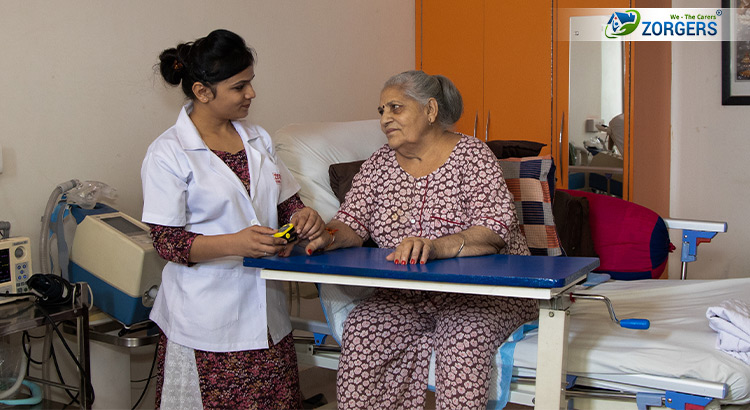Alzheimer’s is a progressive brain disorder affecting memory, thinking, and behavior. It’s the most common cause of dementia, impacting one’s ability to perform daily activities independently.
The exact cause of Alzheimer’s is not fully understood, but a combination of genetic, environmental, and lifestyle factors is believed to contribute. Age is a significant risk factor, and family history may also play a role.
Symptoms:
In the early stages of Alzheimer’s, individuals might exhibit subtle signs such as forgetfulness and difficulty with familiar tasks. As the condition progresses, these symptoms intensify, impacting various aspects of daily life.
Memory Challenges:
Forgetfulness may extend beyond occasional lapses, with individuals struggling to remember recently learned information or important dates.
Communication Difficulties:
Alzheimer’s can disrupt communication skills. Finding the right words, joining or following a conversation, or expressing thoughts coherently become increasingly challenging.
Mood Swings and Personality Changes:
Changes in mood and personality often accompany Alzheimer’s progression. Individuals may experience heightened anxiety, irritability, or withdrawal from social activities.
Confusion and Disorientation:
Confusion about time, place, or familiar surroundings becomes more apparent. Individuals may get lost in familiar places or lose track of the passage of time.
Struggling with Basic Self-Care:
In advanced stages, individuals may face difficulties with basic self-care tasks, such as dressing, bathing, or maintaining personal hygiene.
Difficulty Problem-Solving:
Alzheimer’s can impact cognitive abilities, making it challenging to solve problems, plan daily activities, or make sound judgments.
Loss of Initiative:
Individuals may lose interest in activities they once enjoyed, exhibiting a diminished initiative to engage in social, recreational, or work-related pursuits.
Physical Impairments:
In later stages, Alzheimer’s can affect motor functions, leading to difficulties in coordination and balance.
Caring for a Loved One with Alzheimer’s:
Quick Tips for Caregivers
Structured Routine:
Establishing a structured daily routine provides individuals with Alzheimer’s a sense of predictability and security. Consistency in activities, meals, and rest times helps reduce confusion and enhances their comfort in their daily environment.
Clear Communication:
Communicating with simplicity and clarity is crucial. Individuals with Alzheimer’s may find complex language challenging to understand. Speaking slowly, using straightforward sentences, and offering reassurance through a calm tone can foster better communication.
Engaging Activities:
Engaging in familiar and enjoyable tasks not only provides a sense of purpose but also helps in retaining cognitive abilities.
Prioritize Self-Care:
Caregivers play a vital role in providing support, but it’s equally important to prioritize their own well-being. Taking care of oneself enables caregivers to provide better care for their loved ones with Alzheimer’s.
At Zorgers, our Alzheimer Care Services are rooted in compassion, understanding, and personalized care. We strive to create a supportive environment for individuals navigating the challenges of Alzheimer’s, tailoring our approach to their unique needs. From structured routines that provide stability to innovative engagement activities, we focus on enhancing overall well-being. Our commitment extends beyond the individual to include families, fostering a sense of community where experiences can be shared, and valuable resources accessed. Zorgers aims to illuminate the Alzheimer’s journey with expertise, empathy, and a dedication to empowering both individuals and their caregivers.
In summary, Zorgers stands as a dedicated ally in the Alzheimer’s journey, providing personalized care, embracing innovative approaches, fostering community, promoting education, and advocating for a future where individuals affected by Alzheimer’s can live with dignity and hope.







